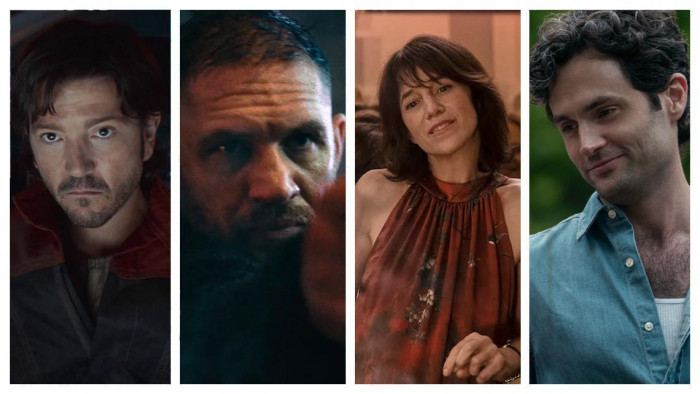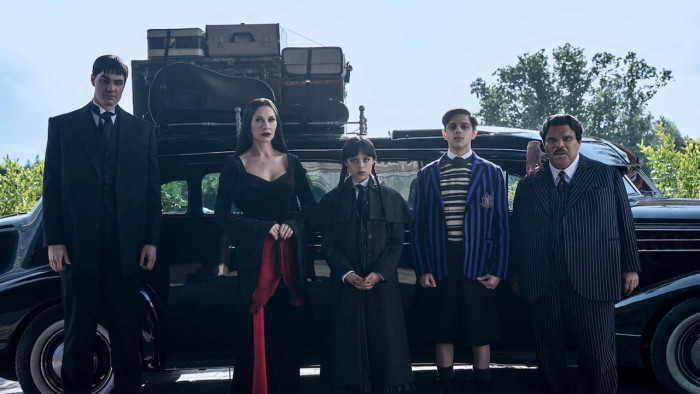We got three comedians to put a terrible joke into their show
What does it take to turn a bad joke good?


In a sadistic experiment, we made stand-ups work a painfully bad joke into their Edinburgh Fringe preview. Ralph Jones went along to find out if the unfunny can be made hilarious
How funny do you need to be to make something unfunny funny? What does it take for a terrible joke, a fat turkey in a world of swans, to soar into the air? We tend to assume that comedians are funny because they have brilliant material. But what if they are forced to tell a joke so bad it makes milk curdle? A joke that could start a civil war. Can a comedian polish a turd until it looks like a peach?
Jokes are peculiar – fragile and easily butchered. You will be familiar with the sensation of delivering a joke that dies on its arse in front of your friends. You laugh for a second, because no one else has. You say “Yeah…” and as you look down at your drink you realise that, because a man can never give birth, this is the worst pain you will ever experience.
But for you, the stakes are low. For someone whose jokes pay their rent, their career is on the line. In every gig there could be a producer lurking in the dark ready to fill the final seat on his red-hot panel show. Screw up a joke and that producer’s out the door. That slot on ITV2’s Super Funny Brilliant Legends? Never gonna happen.
The joke we have asked our three comedians – Rachel Parris, Andrew Hunter Murray and Joel Dommett – to deliver is an abomination. It goes as follows: “I went out with a redhead once. No hair; just a red head.”
That’s it. That’s the joke. Imagine telling that to a crowd who have paid to see you be funny.
When I deliver the line to Joel Dommett, I assume that either the phone line or he himself has died. He’s angry. Does it even qualify as a joke? We’re not sure. But by God we’re going to get comics to tell it. They’re all up for it, but the worry in their voices tells me one thing: they think it could end badly.
GROUND RULES
Obviously, we need rules in order to stop the comics shying away from the full horror of the joke. So they must not fundamentally alter its phrasing or let on that they have been told to include it.
Joel Dommett is a man who tells self-deprecating stories. Our joke, though it suits no one, suits his act the least. Before his gig at the Camden Comedy Club, an L-shaped room above the Camden Head, I can tell he is nervous. The stakes are high for him, a man with television credits to his name. “I’m just gonna be more descriptive about the story that I already have,” he says. “I’m just gonna riff on it and see where it goes. It’s a bold move.” He’s not convincing me or himself: he doesn’t have a sure grasp on how this joke is going to fit in his act.
I prepare for things to get ugly.

Dommett has told me when he is due to unveil the line. As it approaches, 10 minutes in, I feel tense. Everyone around me is enjoying the show. Not for much longer, I think. He is describing an encounter with an extraordinarily drunk woman he met online and begins to segway into the joke: “People lie on their accounts,” he says. “She said that she was a redhead...” Here we go. Here we bloody go. “Turns out she didn’t have a red hair, she had literally...she was just sunburnt. She was sunburnt; she was just sunburnt.”
He gets it wrong. He bottles it. He mispronounces ‘red hair’ as ‘a red hair’, he changes the actual punchline and he repeats himself, the nerves getting the better of him. The audience laugh but they’re not entirely won over. No doubt about it, this is a misfire. The producer at the back of the room orders an Uber.
This joke is ugly but if it is to work, the comic will need to commit to its ugliness.
THE CHARACTER MAN
The Battersea Arts Centre is as unlike the Camden Head as it is possible to be. A vast space with stone steps and high ceilings, it is less like a comedy club and more like a wedding venue. In a small room here, Andrew Hunter Murray is due to perform as half a dozen characters. This may be his undoing. A stand-up bares their soul when they perform, chipping away at themselves and desperately flinging the fragments at the audience. With character comedy there is none of the same emotional honesty: where a stand-up lets an audience in, a character comedian holds them at bay.

I ask Murray what he does when a joke dies flat on its arse. “It does really shake you,” he says. “The natural instinct is to row back from what you’ve just said in the hope that maybe no one will notice or they’ll think you didn’t mean it as a joke.” This, he says, is the opposite of what you should do; you should instead “redouble your efforts”.
Murray had planned to deliver the joke as a romantically unfulfilled, “desperately unhappy” quizmaster. Fifteen minutes before the gig, he tells me he has changed his mind. He is going to tell it as a flamboyant Brazilian samba instructor. This last-minute change worries me.
Murray begins the show as the quizmaster. When he bounds off stage and then emerges dancing in a red shirt, I feel the familiar quickening of my heart. I flash forward and picture the silence, the sudden backlash of the crowd, the burning down of the venue. I watch the audience furtively, anxious to see whether they notice anything amiss in the routine. Will Murray fumble the wording too? I think about something he said to me: “Almost every comedian thinks that everything they say deserves an enormous laugh.” As I watch him gear up towards the joke I think: this joke does not deserve an enormous laugh.
“Samba has taught me passion,” Murray says in his dodgy Brazilian accent. “I went out with a redhead once.” Here we go. “No hair; just a red head.” This is the exact wording of the joke. He’s nailed it. As soon as the line is out, his fate is sealed. The audience reward him with an appreciative laugh. I relax. But I notice something about the laugh: because the joke is delivered affectedly and not packaged as a real-life anecdote, it’s tinged with a rolling of the eyes. One man, though he laughs, grimaces a little then looks at his lap: first came the laugh, then came the shame.

MAKE IT REAL
Rachel Parris is the final comedian of the three. If she’s to succeed she will need to combine Murray’s discipline with the authenticity of Dommett’s storytelling. Perhaps, if she can do this, this deformed monster of a joke has a chance.
“I think the specific badness of this joke is that it’s quite a small joke,” Parris says before her show at the Cog Artspace, a welcoming room above a pub in Angel. “If anything, the challenge is to draw attention to it. It needs bringing out a bit to get people to laugh at it.” Her plan is to weave it into a routine about how she is set up with inappropriate men at the ‘singles table’ at weddings.
As the line approaches, I feel anxious that the joke could hang over the gig like a demonic fart. Watching comedians fail isn’t pleasant. This infernal joke could ruin her gig. Hell, it could sink her career. I imagine the producer at the back of the room, looking over the top of his sunglasses.

Parris kicks off the section into which the joke is being smuggled. She talks about the awkwardness of being single at weddings. Once, she says, her friends tried to set her up with a redhead. “No hair,” she says. “Just a big red head.”
And there it is. The laugh we’ve been looking for. The joke lands. There is no haunting silence, no backtracking. It just lands. In a show with laughs ranging from polite to full-throated, this is a nice mid-ranger: the unmistakable laugh of an audience happy to have understood a joke. She ties the joke up with a bow, describing the fictional man as “a cross between The Rock and Duncan Goodhew” and explaining that she stopped flirting with him before he turned the colour of a damson.
The imaginary producer at the back of the room takes his sunglasses off. He applauds until his hands are raw.

After the gig, downstairs in the pub, I speak to a comic I know who was in the audience. I explain the article to him. “Guess which joke it was,” I ask. He thinks about the show. He thinks for a long time. Despite straining and straining, he can’t work it out. “I don’t know,” he says finally. I reveal it to him. His eyes widen and he explodes. “No way,” he says. “I loved that joke!”
Even the ugliest of jokes can be transformed; even the most cumbersome of lines can heave itself into the air and beat its fat wings. If in a few months’ time you are watching Live At The Apollo and you hear the words, “I went out with a redhead once...” don’t be at all surprised. This was where it was born.
For information on gigs, go to rachelparris.com; joeldommett.com; austentatiousimpro.com
All photos by Jamie Drew
Latest
Related Reviews and Shortlists









